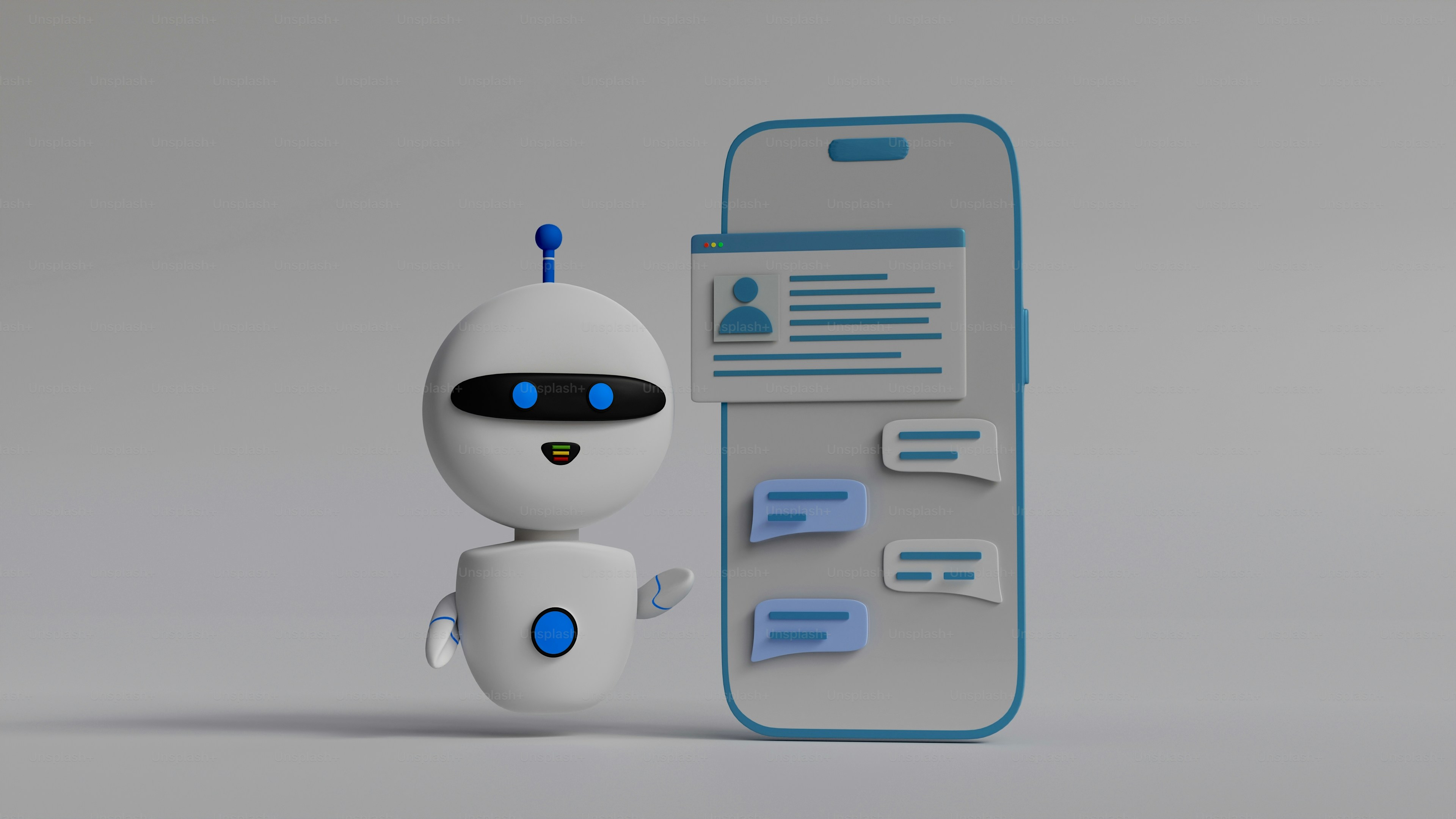AI时代下的法律伦理:ChatGPT引发的职业禁忌
近日,一名美国律师因使用人工智能工具ChatGPT撰写法庭文件而被监管机构处以制裁,这一事件引发了广泛关注和讨论。这位律师在为客户提交案件材料时,意外使用了AI生成内容,结果导致他的专业行为受到质疑。
根据报道,这名律师的行为涉及使用ChatGPT生成法律文档,并未明确指出AI内容的来源,导致其被指控为虚假陈述。监管机构对此采取严厉态度,认为律师必须对提交文件的真实性负有责任,而非依赖AI工具来完成任务。
这一事件不仅揭示了专业伦理问题,还引发了关于AI在法律职业中的合理应用的讨论。律师们通常被要求确保所有提交给法院的材料都是经过严格审核和验证的,以确保其准确性和可靠性。
专家指出,这一案例可能会成为类似事件的先驱,推动行业建立更明确的AI使用标准。在此次处罚中,律师被警告,如果未能证明文档内容的真实性,将面临更严重的后果。
从长远来看,这一事件反映出科技与专业知识之间的平衡问题。律师需要既熟悉新技术的应用,又具备足够的职业素养和责任感,以在AI时代保持法律服务的准确性和可靠性。
The Intersection of AI and Legal Ethics
人工智能与法律伦理的交织
AI technology has revolutionized various aspects of society, including finance. However, the rapid adoption of AI tools, such as ChatGPT, raises significant legal and ethical concerns. These issues extend beyond professional boundaries, impacting personal financial decisions and accountability.
人工智能技术已极大地改变了社会的各个方面,包括财务领域。然而,AI工具如ChatGPT的快速普及引发了一系列法律和伦理问题,这些问题不仅限于职业范畴,还影响个人理财决策和责任追究。
When AI systems make decisions that could influence financial outcomes, users must understand the limitations and biases embedded in these tools. This awareness is crucial for maintaining financial integrity and personal accountability.
当AI系统作出可能影响金融结果的决定时,用户必须了解这些工具的局限性和偏见。这种认识对于维护财务诚信和个人责任至关重要。
AI and Legal Ethics: Exploring Professional Boundaries with ChatGPT
人工智能与法律伦理:探讨ChatGPT引发的职业禁忌
The rise of AI technologies like ChatGPT has introduced new challenges in the realm of legal ethics. These systems, capable of generating convincing responses, raise questions about their role in professional settings and the ethical implications for those who use or manage them.
人工智能技术的兴起,如ChatGPT,引入了法律伦理方面的新挑战。这些系统能够生成令人信服的回复,这在职业场合中引发了关于其角色和使用或管理者在此类系统的伦理影响的问题。
Specifically, the potential for AI to mimic human behavior raises concerns about accountability and the lines between human and artificial intelligence. This has led to debates over whether AI should be treated as a tool or as a partner in professional decision-making.
特别是,人工智能模拟人类行为的潜力引发了对责任和人类与人工智能界限的关切。这导致了关于AI是否应被视为工具或职业决策中的合作伙伴的辩论。
Moreover, the use of AI in legal practice has led to discussions about the ethical responsibilities of developers and users. Questions such as whether AI systems can be held accountable for errors or biases, and how professionals should navigate these complexities are central to this debate.
此外,AI在法律实践中的应用引发了关于开发者和用户的伦理责任的讨论。问题包括AI系统是否可以对错误或偏见承担责任,以及专业人士如何应对这些复杂性是该辩论的核心。
In conclusion, the integration of AI into professional settings like legal practice requires a careful balancing of technological capabilities with ethical considerations. As systems like ChatGPT continue to evolve, understanding and addressing these challenges will be crucial for maintaining trust and integrity in professional contexts.
总之,将AI整合到专业场景(如法律实践)中需要在技术能力和伦理考虑之间进行平衡。随着像ChatGPT这样的系统不断发展,理解并解决这些挑战将至关重要,以确保专业领域中的信任与诚信。
Practical Applications
法律伦理与AI时代:ChatGPT引发的职业禁忌
In recent years, artificial intelligence (AI) has become a transformative force across various industries, offering practical solutions and revolutionizing the way we approach complex problems. However, as AI systems like ChatGPT gain prominence, new challenges have emerged in terms of legal ethics and professional boundaries.
在近年来,人工智能(AI)已成为各行各业变革的力量,提供了实用解决方案,并以全新方式重新审视我们解决复杂问题的方式。但随着像ChatGPT这样的AI系统逐渐崛起,也出现了一些法律伦理和职业边界方面的新挑战。
One notable issue is the ethical dilemmas arising from AI’s ability to mimic human behavior and decision-making. This has led to concerns about accountability and the potential for AI systems to cross professional boundaries, creating so-called “taboo” zones where traditional norms no longer apply.
一个显著的问题是,AI能够模仿人类行为和决策方式,这引发了伦理困境。人们对谁负责这一问题表示担忧,同时担心AI系统可能会越界,跨越传统的职业规范,形成所谓的“禁忌区域”。
Examples include the use of AI in decision-making processes within organizations, where decisions made by AI systems can conflict with existing policies or ethical guidelines. Additionally, there are concerns about AI’s role in influencing public opinion and its potential to create new forms of bias and discrimination.
例如,AI被用于组织内部的决策过程中,由AI系统做出的决定可能与现有政策或伦理准则相冲突。此外,还有关于AI在影响公众舆论以及其潜在可能形成新的偏见和歧视的担忧。
Such challenges highlight the need for a comprehensive framework to govern AI’s applications and ensure that its development aligns with societal values. This involves not only technical advancements but also legal, ethical, and cultural considerations to navigate the complexities of AI in the modern world.
这些挑战凸显了需要建立全面的框架来规范AI的应用,确保其发展与社会价值观相协调。这不仅涉及技术进步,还包括法律、伦理和文化考量,以应对现代世界中复杂的AI问题。
Ultimately, the integration of AI into society requires a balanced approach that respects both the potential benefits and the ethical concerns it raises. By addressing these challenges proactively, we can ensure that AI technologies are developed and deployed in ways that align with the greater good.
总之,AI在社会中的整合需要一种平衡的方法,既尊重其潜在的好处,也关注它引发的伦理问题。通过主动应对这些挑战,我们可以确保AI技术得到合理开发,并以增益为社会的利益为目标。
Common Challenges in AI-Era Legal Ethics: The Case of ChatGPT and Professional Taboos
AI时代下的法律伦理挑战:ChatGPT引发的职业禁忌
Discussing the common challenges and misconceptions surrounding AI in the legal and ethical landscape, particularly focusing on issues related to ChatGPT and its impact on professional norms, is crucial for understanding the evolving nature of technology and its implications for society.
探讨AI在法律和伦理领域面临的常见挑战及误解,特别是与ChatGPT相关的问题及其对职业规范的影响,是理解技术演变及其对社会的影响的重要内容。
One of the primary challenges is ensuring ethical AI development and deployment, which involves addressing issues such as data privacy, algorithmic bias, and transparency. Additionally, concerns about knowledge property rights and intellectual ownership have become increasingly prominent due to advancements in AI capabilities.
主要挑战之一是确保AI的伦理开发和部署,涉及数据隐私、算法偏见以及透明度等问题。同时,由于AI技术的进步,知识产权和智力所有权相关的担忧也日益突出。
ChatGPT, as an AI-powered tool, has raised significant discussions about its potential to disrupt traditional professions. This includes questioning the role of human attorneys, writers, and other professionals in a world where AI can generate legal documents and creative content with remarkable accuracy.
ChatGPT作为一项AI驱动的工具,引发了关于其可能对传统职业造成的冲击的广泛讨论。这包括对人类律师、作家等专业人士在AI生成法律文件和创意内容方面表现出惊人准确性的疑问。
Addressing these challenges requires a multi-faceted approach, including robust regulatory frameworks, ethical guidelines, and public awareness campaigns. Additionally, fostering collaboration between AI developers and legal experts can help mitigate risks and ensure responsible innovation.
解决这些问题需要多方面的方法,包括严格的监管框架、伦理指南以及公众意识活动。此外,促进AI开发者与法律专家的合作,可以帮助降低风险并确保负责任的创新。
Ultimately, navigating the complexities of AI in legal and ethical contexts demands a balanced approach that respects human values while leveraging technological advancements. This balance is essential for addressing concerns around professional taboos and ensuring that AI development aligns with societal norms and expectations.
最终,导航AI在法律和伦理领域的复杂性需要一个平衡的方法,即尊重人类价值而同时利用技术进步。这一平衡对于解决职业禁忌方面的担忧以及确保AI开发符合社会规范和预期至关重要。
Best Practices for Legal Ethics in the AI Era
法律伦理最佳实践:聊天GPT引发的职业禁忌
In the era of artificial intelligence, legal professionals must adopt best practices to navigate the ethical challenges posed by AI technologies.
在人工智能时代,法律专业人士必须采用最佳实践,以应对AI技术带来的伦理挑战。
首先,明确责任和合规要求,确保AI系统的设计和使用符合相关法律法规,例如GDPR(通用数据保护条例)和CCPA(加利福尼亚消费者隐私法案)。同时,保持透明度和可解释性,以便于客户和监管机构理解AI决策过程。
其次,避免利用AI技术进行歧视或不公正行为,确保AI算法的设计和训练数据不含有偏见。最后,加强与团队成员和上级的沟通,确保所有决策遵循伦理准则。
此外,定期审查AI系统的性能和效果,以确保其符合法律标准,并对潜在风险进行评估和管理。
对于聊天GPT引发的职业禁忌,法律专业人士应谨慎使用AI工具,以避免因误用或过度依赖AI而导致的职业问题。遵守职业道德规范,确保客户利益优先,并在必要时寻求伦理咨询师的帮助。
对应的中文翻译:在人工智能时代,法律专业人士必须采取最佳实践,以克服由AI技术带来的伦理挑战。首先,明确责任和合规要求,确保AI系统的设计和使用符合相关法律法规,如GDPR(通用数据保护条例)和CCPA(加利福尼亚消费者隐私法案)。同时,保持透明度和可解释性,以便于客户和监管机构理解AI决策过程。其次,避免利用AI技术进行歧视或不公正行为,确保AI算法的设计和训练数据不含有偏见。最后,加强与团队成员和上级的沟通,确保所有决策遵循伦理准则。此外,定期审查AI系统的性能和效果,以确保其符合法律标准,并对潜在风险进行评估和管理。
对于聊天GPT引发的职业禁忌,法律专业人士应谨慎使用AI工具,以避免因误用或过度依赖AI而导致的职业问题。遵守职业道德规范,确保客户利益优先,并在必要时寻求伦理咨询师的帮助。
AI Era Legal Ethics: 职业禁忌 and the Future of ChatGPT
AI时代法律伦理:ChatGPT引发的职业禁忌及最终思考
The rise of AI technologies like ChatGPT has sparked significant discussions about the ethical implications in the legal profession. As artificial intelligence becomes more integrated into legal practices, questions arise about its role in decision-making and the potential for bias.
人工智能技术如ChatGPT的兴起引发了关于法律职业伦理的广泛讨论。随着人工智能在法律实践中越来越紧密地融合,人们开始担忧其在决策中的作用以及潜在偏见的可能性。
Professional organizations have emphasized the need for ethical guidelines to govern AI use in legal settings. This includes transparency in decision-making processes and accountability for AI-driven outcomes.
专业组织强调了制定伦理准则的必要性,以规范AI在法律环境中的使用。这包括对决策过程的透明度以及对由AI驱动的结果的责任追究。
Discussions about the impact of ChatGPT on specific industries, such as law, have highlighted the need for professionals to adapt to new technologies while maintaining their ethical standards. The future of AI in legal practices will depend on striking a balance between technological advancement and human values.
关于ChatGPT对特定行业(如法律)的影响的讨论,凸显了专业人士需要适应新技术同时保持其职业伦理标准的必要性。AI在法律实践中的未来将取决于如何平衡技术进步与人类价值。
Final thoughts emphasize the importance of ongoing dialogue among legal professionals, policymakers, and ethical experts to ensure that AI technologies are developed and deployed responsibly. This collaboration is essential to address the challenges and opportunities presented by AI in the legal field.
最终观点强调了法律专业人士、政策制定者和伦理专家的持续对话的重要性,以确保AI技术以负责任的方式开发和部署。这种合作是解决AI在法律领域呈现出的挑战和机会的关键。

